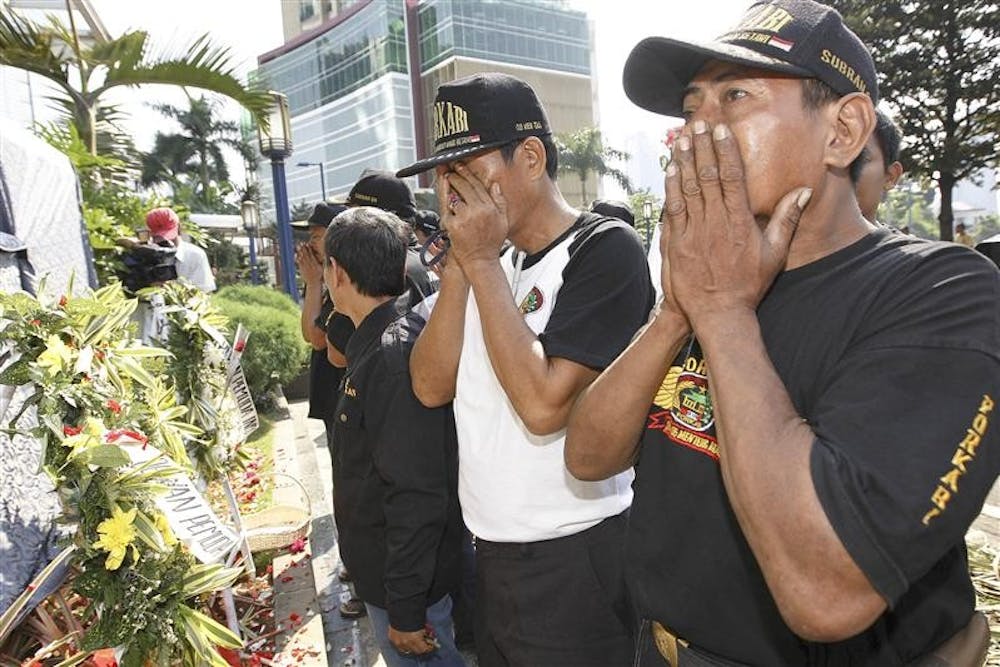JAKARTA, Indonesia – The terrorist attacks that struck two luxury hotels in the capital have shaken ordinary Indonesians who had grown more confident after waves of arrests had left the nation’s al-Qaida-linked militant network seriously weakened.
Coming four years after the country’s last serious terrorist attack, Friday’s twin suicide bombings at the J.W. Marriott and Ritz-Carlton hotels in Jakarta unleashed a new wave of anxiety in the world’s largest Muslim-majority country.
“I am shocked by these bombings,” said Razif Harahap, 45, a Jakarta graduate student said Sunday. “The same people who carried out these attacks could launch another one, because the mastermind is still at large. We have to be careful.”
Police have yet to name a suspect in the bombings, but the method, target and type of bombs used in the attacks immediately raised suspicions of involvement by the Jemaah Islamiyah terrorist group and Noordin M. Top, the fugitive Malaysian national who heads a particularly violent offshoot of the network.
The latest attacks killed seven, plus the two suspected attackers, and wounded 50, many of them foreigners.
Officials said 17 foreigners were among the wounded, including eight Americans and citizens of Australia, Britain, Canada, Hong Kong, India, Italy, the Netherlands, Norway and South Korea.
Jemaah Islamiyah militants rose to prominence after the 2002 nightclub bombings in the beach resort of Bali that killed 202 people, most of them foreigners.
It staged attacks in Indonesia in each of the next three years: a 2003 car bombing outside the J.W. Marriott, a 2004 truck bombing outside the Australian Embassy, and triple suicide bombings on Bali restaurants by attackers carrying bombs in backpacks
in 2005.
After the government launched a major anti-terrorism campaign, no major attacks had been reported since then – until Friday’s explosions.
While Friday’s attacks rekindled old anxieties, Indonesians interviewed Sunday said they did not believe the bombings signaled a resurgence of strength by the militants, who want to establish an Islamic state in the region.
Indonesia has the world’s largest Muslim population, but the Islamist extremists enjoy little support among the nation’s largely moderate public.
The terrorists do not have enough money and support to launch another major attack soon, said Agus Triharso, 40, a motorbike taxi driver in Jakarta.
“Noordin Top and his friends have support from just a few hard-line Muslims,” Triharso said. “As Muslims, we have to stop them.”
Terrorist attacks rekindle Indonesians’ anxieties

Get stories like this in your inbox
Subscribe


